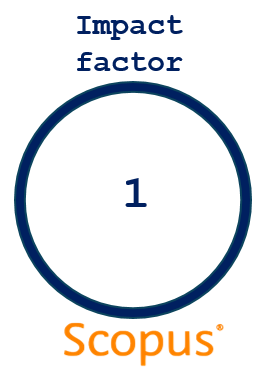ACTA Pharmaceutica Sciencia
2023 , Vol 61 , Num 2
Syzygium aromaticum essential oil ameliorates levofloxacin-induced hepatic injury in rats: antioxidant, biomarker and histopathological analysis
1 Laboratory of Clinical Pharmacy, Faculty of Pharmacy, Hasanuddin University, Indonesia2 Laboratory of Phytochemistry, Faculty of Pharmacy, Hasanuddin University, Indonesia
3 Department of Pulmonology, Faculty of Medicine, Hasanuddin University, Indonesia
DOI : 10.23893/1307-2080.APS6113 Viewed : 8367 - Downloaded : 2757 Prolonged levofloxacin treatment can trigger hepatotoxicity. This study aimed to examine Syzygium aromaticum L. essential oil effect on levofloxacin-induced hepatic injury in rats. The chemical constituents and radical scavenging activity were also examined. Rats (n=30) were grouped to receive per oral administration of either placebo, levofloxacin (93 mg/kg), S. aromaticum L. oil (10, 25, or 50 mg/kg), or curcuma (6 mg/kg) with levofloxacin for 28 days. Serum liver biomarkers, liver malondialdehyde (MDA) levels, and histopathological changes were analyzed. S. aromaticum L. oil contained eugenol (63.63%) and the IC50 was 35.1 µg/mL. Levofloxacin induced significant increases in serum biomarker and tissue MDA levels (p < 0.05), with significant damage in hepatocytes. The oil treatment (10 mg/kg) reduced the levels of alanine aminotransferase, total bilirubin, lactate dehydrogenase, tissue MDA (p < 0.05), and the hepatic injury. In conclusion, S. aromaticum L. oil alleviated levofloxacin-induced liver injury, possibly related to its eugenol content and radical scavenging activity. Keywords : Clove essential oil, hepatotoxicity, levofloxacin, Syzygium aromaticum L.





